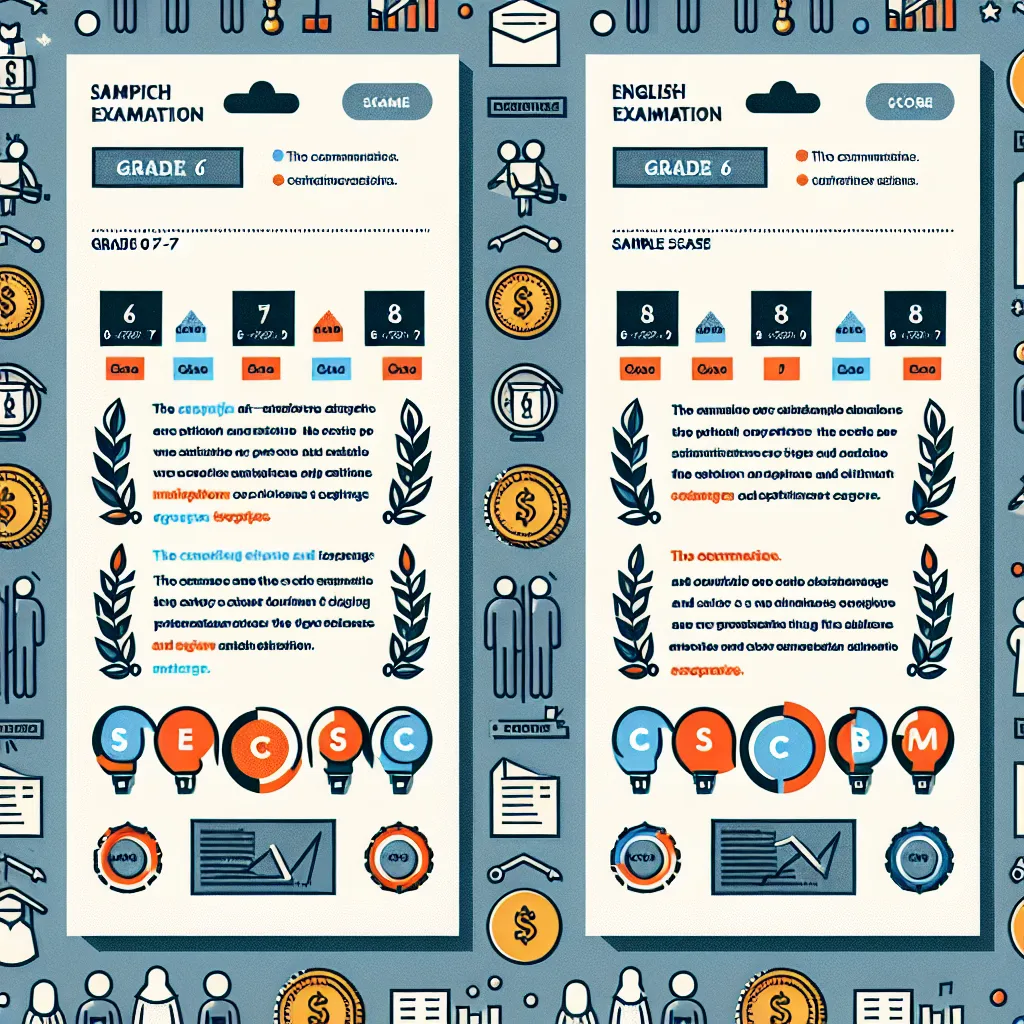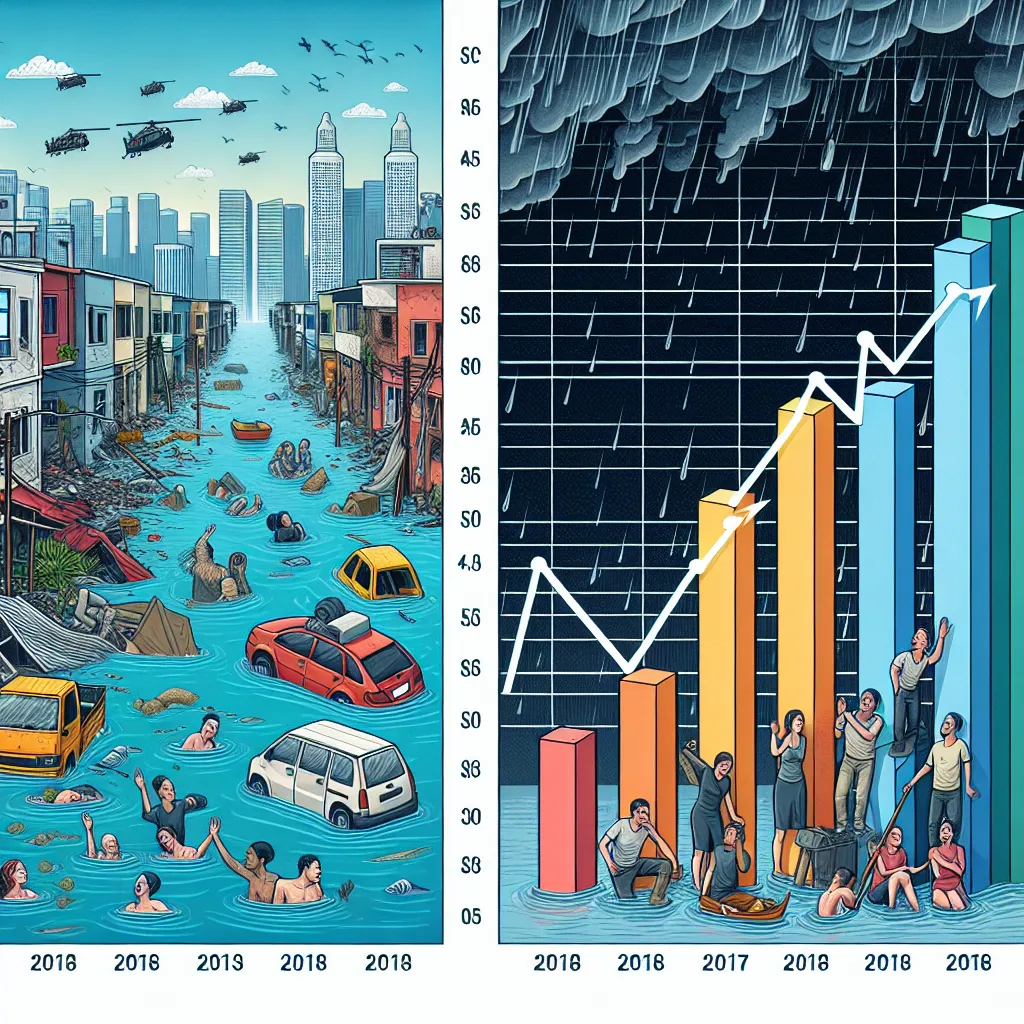Inflation and its impact on low-income workers is a recurring theme in IELTS Writing Task 2. This topic has appeared frequently in recent years and is likely to continue being relevant due to ongoing global economic challenges. Let’s examine a sample question and provide model essays for different band scores, along with a detailed analysis.
 IELTS Writing Task 2 Sample Essays
IELTS Writing Task 2 Sample Essays
Analyzing the Question
Let’s consider the following question, which is representative of the type you might encounter in the IELTS Writing Task 2:
In many countries, the gap between the rich and the poor is increasing. What problems does this cause? What measures can be taken to reduce this gap?
This question relates directly to our topic of supporting low-income workers during inflation, as economic inequality often widens during inflationary periods. Let’s break down the question:
- Topic: The increasing wealth gap between rich and poor
- Task 1: Discuss the problems caused by this gap
- Task 2: Suggest measures to reduce the gap
Now, let’s look at two sample essays that address this question, one aimed at a Band 6-7 score and another at a Band 8-9 score.
Sample Essay for Band 6-7
The growing disparity between the wealthy and the poor is a concerning trend observed in numerous nations worldwide. This essay will explore the problems arising from this situation and propose potential solutions to narrow the gap.
The widening wealth gap leads to several significant issues. Firstly, it can result in social unrest as the poor become frustrated with their economic situation. This may lead to increased crime rates and political instability. Secondly, economic inequality often translates to unequal access to education and healthcare, perpetuating the cycle of poverty. Lastly, a large wealth gap can slow down economic growth as a significant portion of the population lacks the means to participate fully in the economy.
To address this issue, governments can implement various measures. One approach is to introduce progressive taxation systems, where higher earners pay a larger percentage of their income in taxes. This can help redistribute wealth more evenly across society. Additionally, investing in public education and skill development programs can provide low-income individuals with better opportunities for high-paying jobs. Governments should also consider implementing policies to ensure fair wages, such as increasing the minimum wage to keep pace with inflation.
In conclusion, the growing wealth gap poses serious challenges to society, including social unrest and perpetuated poverty cycles. However, through targeted government interventions such as progressive taxation and investment in education, it is possible to work towards a more equitable distribution of wealth.
(Word count: 253)
Sample Essay for Band 8-9
The escalating disparity between the affluent and the impoverished is an increasingly prevalent phenomenon in numerous countries, presenting a multifaceted challenge with far-reaching consequences. This essay will elucidate the myriad problems stemming from this widening chasm and propose a comprehensive set of measures to mitigate its effects.
The repercussions of a growing wealth gap are both profound and multifaceted. Primarily, it engenders social fragmentation, fostering a sense of alienation and resentment among the economically disadvantaged. This disillusionment can manifest in various forms of social upheaval, ranging from increased crime rates to political instability, thereby undermining the very fabric of society. Moreover, economic inequality invariably translates into disparate access to fundamental services such as education and healthcare. This not only perpetuates the cycle of poverty but also squanders human potential, depriving society of valuable contributions from a significant segment of the population. Furthermore, a substantial wealth gap can act as a drag on economic growth, as a large proportion of citizens lack the purchasing power to stimulate demand, thereby impeding overall economic dynamism.
To address this burgeoning issue, a multi-pronged approach is imperative. Firstly, the implementation of a more progressive taxation system, where higher earners contribute a larger proportion of their income, can serve as a powerful tool for wealth redistribution. This should be complemented by closing tax loopholes that disproportionately benefit the wealthy. Secondly, substantial investment in public education and vocational training programs can equip low-income individuals with the skills necessary to compete in an increasingly knowledge-based economy. This should be coupled with policies that promote equal access to higher education, such as needs-based scholarships and low-interest student loans. Additionally, governments should enact and enforce robust labor laws, including regular adjustments to the minimum wage to keep pace with inflation, thereby ensuring that work provides a livable income. Lastly, fostering entrepreneurship among lower-income groups through targeted microfinance initiatives and business development programs can create pathways for wealth creation and economic mobility.
In conclusion, the widening wealth gap presents a formidable challenge with far-reaching societal implications. However, through a combination of progressive fiscal policies, investment in human capital, and the promotion of economic opportunities for the disadvantaged, it is possible to work towards a more equitable and cohesive society. The responsibility for implementing these measures lies not only with governments but also with corporations and civil society, underscoring the need for a collaborative approach to addressing this pressing issue.
(Word count: 398)
Key Points to Remember When Writing
-
Essay Structure: Both essays follow a clear structure with an introduction, body paragraphs addressing each part of the question, and a conclusion. The Band 8-9 essay demonstrates more sophisticated paragraph development.
-
Vocabulary: The Band 8-9 essay uses more advanced vocabulary (e.g., “multifaceted,” “elucidate,” “engendered”) and a wider range of sentence structures. However, the Band 6-7 essay still uses appropriate vocabulary for the task.
-
Task Response: Both essays address all parts of the question, but the Band 8-9 essay provides more detailed explanations and examples.
-
Coherence and Cohesion: Both essays use linking words and phrases, but the Band 8-9 essay demonstrates more sophisticated use of cohesive devices.
-
Grammatical Range and Accuracy: The Band 8-9 essay shows a wider range of complex structures used accurately, while the Band 6-7 essay uses simpler structures with occasional errors.
Advanced Vocabulary to Remember
- Disparity (noun) /dɪˈspærəti/ – a great difference
- Perpetuate (verb) /pərˈpetʃueɪt/ – to cause to continue
- Mitigate (verb) /ˈmɪtɪɡeɪt/ – to make less severe or painful
- Multifaceted (adjective) /ˌmʌltiˈfæsɪtɪd/ – having many aspects
- Engender (verb) /ɪnˈdʒendər/ – to cause or give rise to
- Imperative (adjective) /ɪmˈperətɪv/ – of vital importance; crucial
- Burgeoning (adjective) /ˈbɜːrdʒənɪŋ/ – growing or expanding rapidly
- Cohesive (adjective) /koʊˈhiːsɪv/ – characterized by unity
In conclusion, addressing the issue of supporting low-income workers during inflation requires a comprehensive understanding of economic policies and their impacts. Practice writing essays on this topic, considering various angles such as government interventions, corporate responsibility, and individual actions. Remember to structure your essay clearly, use a range of vocabulary and grammatical structures, and fully address all parts of the question. Feel free to share your practice essays in the comments section for feedback and further improvement!


